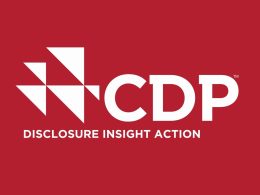Gold Standard has launched a pilot programme to integrate digital Measurement, Reporting, and Verification (dMRV) tools into its certification framework. The initiative, running until October 2026, aims to enhance the accuracy, transparency, and efficiency of carbon credit verification and sustainable development reporting under the Gold Standard for the Global Goals (GS4GG). This effort aligns with Gold Standard’s broader goal of creating a fully integrated digital system, following the introduction of a digital SDG Impact tool in May 2024.
The new programme builds on the outputs of the “Digital Monitoring, Reporting, and Verification (DMRV)” working group, funded by Google.org and reported in November 2023. It focuses on automating data collection, streamlining emissions reporting, and reducing the burden on project developers while maintaining high integrity standards.
Margaret Kim, CEO of Gold Standard, emphasised the transformative potential of digital technologies, stating, “Digital technologies have the potential to transform the way climate and sustainable development impacts are measured and verified. This pilot is another step on our journey to bring digital efficiencies to Gold Standard to enhance the integrity of impact data and ensure that benefits are delivered faster and more effectively.”
The pilot will allow participating projects to issue credits more frequently through an “interim issuance track,” accelerating access to finance. It also includes support from Gold Standard to ensure compliance with GS4GG and MRV requirements. Projects that fail to meet the criteria may revert to traditional certification methods.
The initiative is now open for proposals, with the first applications to be considered starting 1 November 2024. An expert working group, comprising technical specialists and dMRV professionals, will assess the feasibility and application of proposed solutions. The programme aims to gather insights into operational challenges, inform future guidelines, and pave the way for a more automated and data-driven carbon crediting system.















